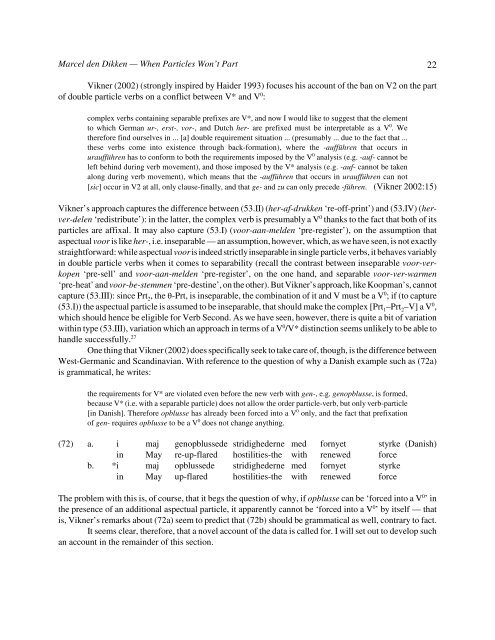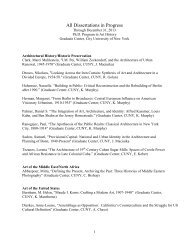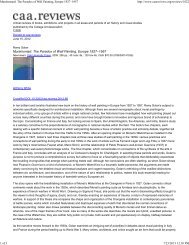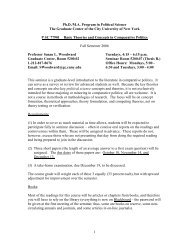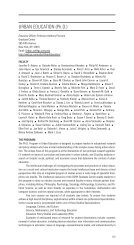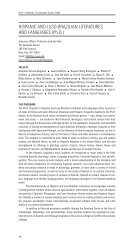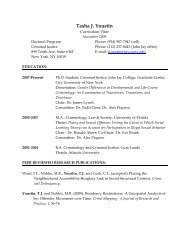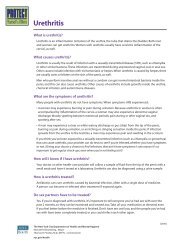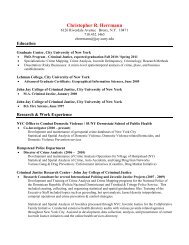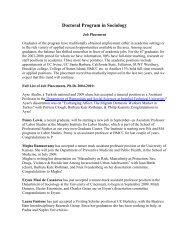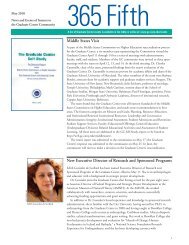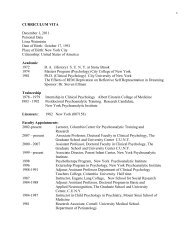When Particles Won't Part - CUNY Graduate Center
When Particles Won't Part - CUNY Graduate Center
When Particles Won't Part - CUNY Graduate Center
You also want an ePaper? Increase the reach of your titles
YUMPU automatically turns print PDFs into web optimized ePapers that Google loves.
Marcel den Dikken — <strong>When</strong> <strong><strong>Part</strong>icles</strong> Won’t <strong>Part</strong><br />
Vikner (2002) (strongly inspired by Haider 1993) focuses his account of the ban on V2 on the part<br />
of double particle verbs on a conflict between V* and V 0 :<br />
complex verbs containing separable prefixes are V*, and now I would like to suggest that the element<br />
to which German ur-, erst-, vor-, and Dutch her- are prefixed must be interpretable as a V 0 . We<br />
therefore find ourselves in ... [a] double requirement situation ... (presumably ... due to the fact that ...<br />
these verbs come into existence through back-formation), where the -aufführen that occurs in<br />
uraufführen has to conform to both the requirements imposed by the V 0 analysis (e.g. -auf- cannot be<br />
left behind during verb movement), and those imposed by the V* analysis (e.g. -auf- cannot be taken<br />
along during verb movement), which means that the -aufführen that occurs in uraufführen can not<br />
[sic] occur in V2 at all, only clause-finally, and that ge- and zu can only precede -führen. (Vikner 2002:15)<br />
Vikner’ s approach captures the difference between (53.II) (her-af-drukken ‘re-off-print’ ) and (53.IV) (herver-delen<br />
‘redistribute’ ): in the latter, the complex verb is presumably a V 0 thanks to the fact that both of its<br />
particles are affixal. It may also capture (53.I) (voor-aan-melden ‘pre-register’ ), on the assumption that<br />
aspectual voor is like her-, i.e. inseparable — an assumption, however, which, as we have seen, is not exactly<br />
straightforward: while aspectual voor is indeed strictly inseparable in single particle verbs, it behaves variably<br />
in double particle verbs when it comes to separability (recall the contrast between inseparable voor-verkopen<br />
‘pre-sell’ and voor-aan-melden ‘pre-register’ , on the one hand, and separable voor-ver-warmen<br />
‘pre-heat’ and voor-be-stemmen ‘pre-destine’ , on the other). But Vikner’ s approach, like Koopman’ s, cannot<br />
capture (53.III): since Prt 2, the 2-Prt, is inseparable, the combination of it and V must be a V 0 ; if (to capture<br />
(53.I)) the aspectual particle is assumed to be inseparable, that should make the complex [Prt 1–Prt 2–V] a V 0 ,<br />
which should hence be eligible for Verb Second. As we have seen, however, there is quite a bit of variation<br />
within type (53.III), variation which an approach in terms of a V 0 /V* distinction seems unlikely to be able to<br />
handle successfully. 27<br />
One thing that Vikner (2002) does specifically seek to take care of, though, is the difference between<br />
West-Germanic and Scandinavian. With reference to the question of why a Danish example such as (72a)<br />
is grammatical, he writes:<br />
the requirements for V* are violated even before the new verb with gen-, e.g. genopblusse, is formed,<br />
because V* (i.e. with a separable particle) does not allow the order particle-verb, but only verb-particle<br />
[in Danish]. Therefore opblusse has already been forced into a V 0 only, and the fact that prefixation<br />
of gen- requires opblusse to be a V 0 does not change anything.<br />
(72) a. i maj genopblussede stridighederne med fornyet styrke (Danish)<br />
in May re-up-flared hostilities-the with renewed force<br />
b. *i maj opblussede stridighederne med fornyet styrke<br />
in May up-flared hostilities-the with renewed force<br />
The problem with this is, of course, that it begs the question of why, if opblusse can be ‘forced into a V 0 ’ in<br />
the presence of an additional aspectual particle, it apparently cannot be ‘forced into a V 0 ’ by itself — that<br />
is, Vikner’ s remarks about (72a) seem to predict that (72b) should be grammatical as well, contrary to fact.<br />
It seems clear, therefore, that a novel account of the data is called for. I will set out to develop such<br />
an account in the remainder of this section.<br />
22


